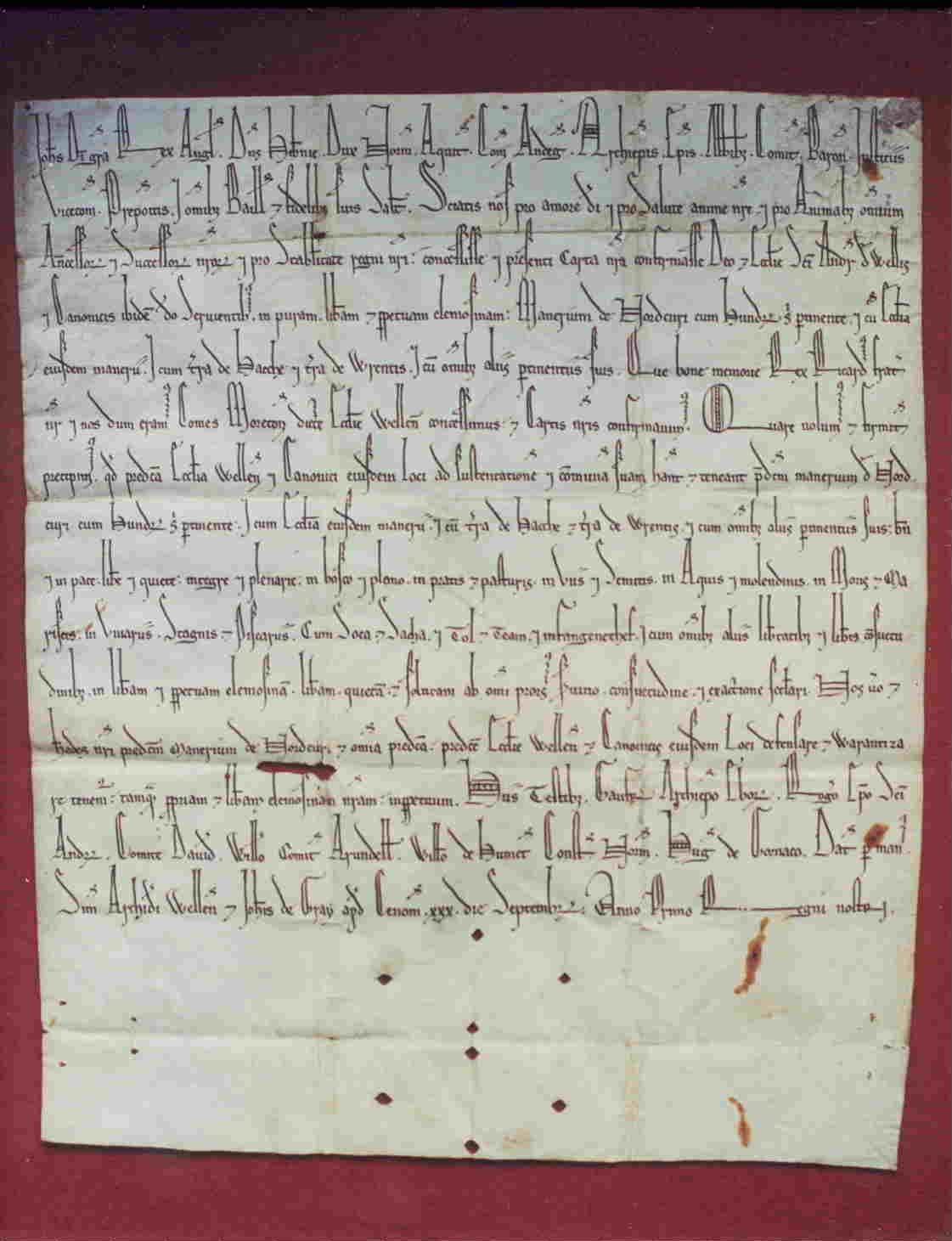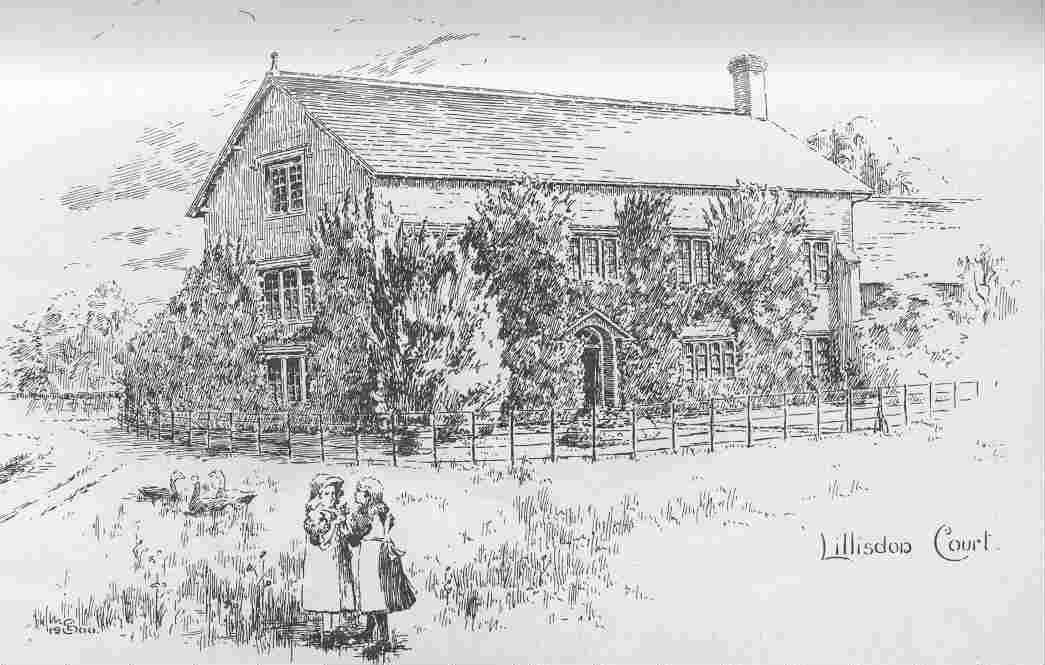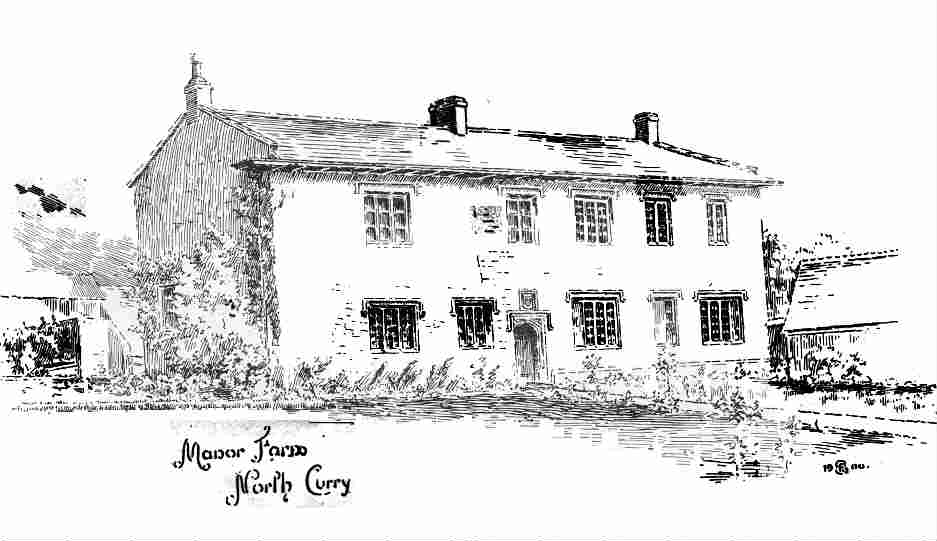|
The History of North Curry |
|
|
North Curry under the Bishops of Bath and Wells When King Richard I (Richard Coeur de Lion) was imprisoned by Leopold of Austria, who handed him over to the Emperor Henry VI in 1194 after the failure of the third Crusade, he needed 150,000 marks to pay for his ransom. In order to raise it he handed over North Curry, alongside other possessions, to the Bishop of Wells, in return for an advance of cash. A Charter of King Richard I in 1189 gives the hundred of Northcuri to the Church of St Andrew Wells and Reginald Bishop of Bath. In 1242 Bishop Joscelin presented the Dean and Chapter of Wells Cathedral with the Manor and Hundred of North Curry and they became responsible for its administration. The hundred was sub-divided into tythings, each under a reeve. Within North Curry were the tything hamlets of Knapp, Lillesdon, Wrantage, Hillend (Helland), Newport and Moordon (Moredon). Newport was an ancient borough with privileges and a chapel.
Local manor courts were held in the village and were presided over by the steward and one of the canons of Wells Cathedral. The steward, canon and his servants and horses were accommodated at the expense of the village. Two courts were held in North Curry for the hearing of petty offences. The Court Leet for petty criminal offences, and the Court Baron for the hearing of petty civil offences. Tenancy reversions, disputes about land, digging of ditches, repair of buildings, nuisances and the building of houses without permission etc. were heard and judged with fines and punishments imposed. Quarterly courts were held in Taunton for more serious crimes. There was a prison in North Curry in 1597. All property in North Curry was leased to tenants for their life with that property reverting to others at their death with the local court granting the new holding.
In 1790 a notice was published declaring the 1st August Llammas Fair would be held in future on the first Tuesday in September … for the sale of fat and lean cattle, sheep and horses by butchers and horsedealers and the inhabitants of the village will endeavour to get a good shew of every kind …. The fair was held in the centre of the village and the stock lined up around the village green. The sheep were penned in the Shambles and some of the stones in Church Road (formerly The Pavement) are reputed to be the remains of the pens. The fair lasted two days, one for business and one for pleasure, and on these days customers were expected to pay all taxes and doctors accounts, and labourers were hired. Gingerbread and sweet stalls were set up round the square. The Dean and Chapter of Wells continued to be the administrators of North Curry until 1866 when all North Curry property was handed over to the Ecclesiastical Commissioners who then became Lords of the Manor. It was only then that the tenants were allowed to become possessors of freeholds. The Manor included the present civil parishes of Stoke St Gregory and West Hatch and remained in the possession of the Dean and Chapter of Wells who are still patrons of the living after more than 760 years. For more information on the history of North Curry why not buy a copy of "North Curry - A Place in History" by Angela Dix. For details go to http://www.dixuk.com. |
|
 On 10th September 1206 a Charter of King John confirmed the
grant made by King Richard I and also granted a market for cattle, sheep and
horses at Northcuri every Wednesday. Later a grant was made for the market to be
exchanged for another market every Tuesday and a yearly fair, known as the
Llammas Fair, for three days starting on 1st August. North Curry was noted as a
favourite hunting ground of King John. During the King’s summer visits to
North Curry it was customary for one of the tenants to superintend the haymaking
in the kingesmeade in white gloves and with a white rod in his hand. King John
is also popularly credited with having instituted what was to become known as
the
On 10th September 1206 a Charter of King John confirmed the
grant made by King Richard I and also granted a market for cattle, sheep and
horses at Northcuri every Wednesday. Later a grant was made for the market to be
exchanged for another market every Tuesday and a yearly fair, known as the
Llammas Fair, for three days starting on 1st August. North Curry was noted as a
favourite hunting ground of King John. During the King’s summer visits to
North Curry it was customary for one of the tenants to superintend the haymaking
in the kingesmeade in white gloves and with a white rod in his hand. King John
is also popularly credited with having instituted what was to become known as
the 
